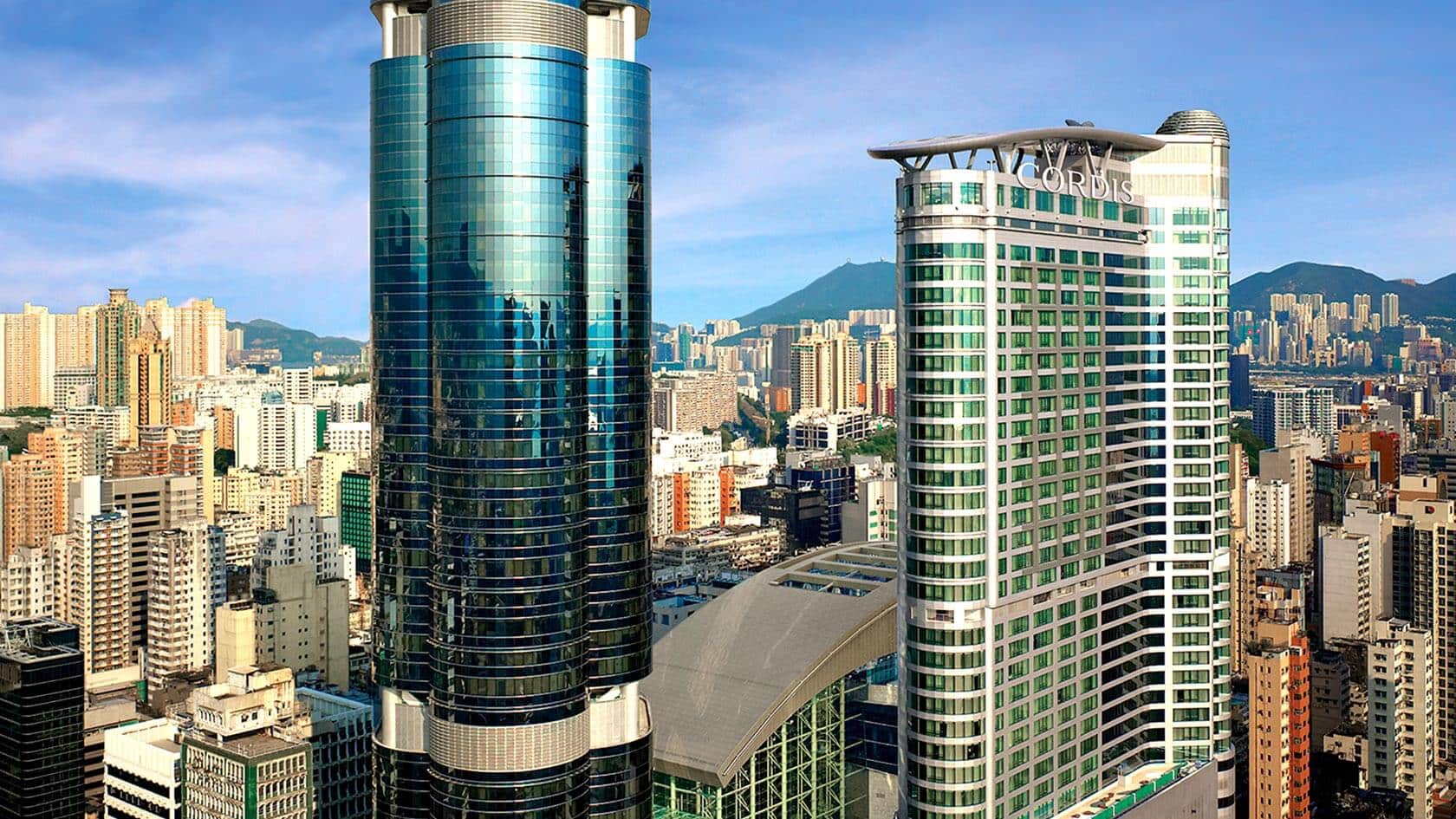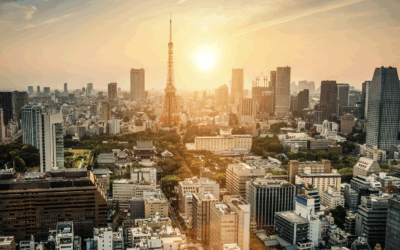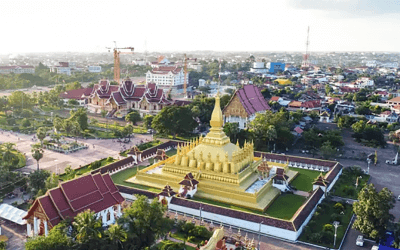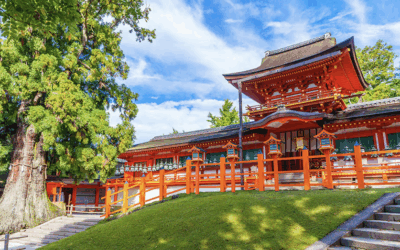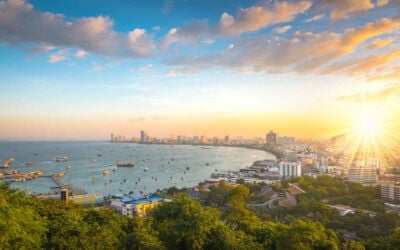Last updated February 22nd, 2024.
The Hong Kong real estate market has ranked among the world’s most expensive for over a decade. Unfortunately, the city’s future doesn’t look bright.
Property prices in Hong Kong are already facing downward pressure. For the first time in many years, home values registered three consecutive years of decline.
Local sentiment in Hong Kong’s property market is also very weak. Here’s an example: an undisclosed buyer recently signed a contract for one of the city’s costliest homes located on Mount Nicholson.
But less than two weeks later, the buyer backed out of the agreement and forfeited a deposit of HK$36 million (about US$4.5 million). That equals 10% of the total purchase price.
Of course, if buyers are willing to lose 10% of the purchase price, the implication is they expect at least a 10% drop in Hong Kong’s real estate market.
We think Hong Kong property prices will fall significantly more than that. Below are three reasons why.
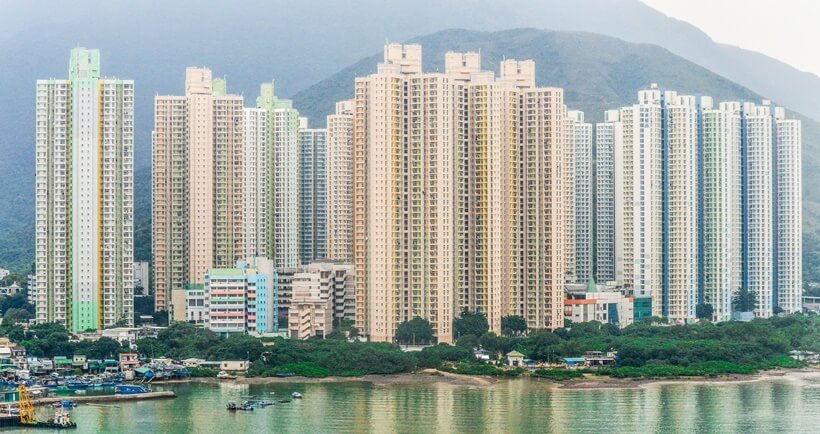
Costing above US$20,000 per square meter, the Hong Kong housing market could remain the most expensive in Asia. We have good reasons to think prices are about to tumble down though.
Hong Kong Housing Prices: Is a Decline Inevitable?
Despite its status as East Asia’s top financial center, Hong Kong’s economy is struggling due to several factors – both financial and political in nature.
A looming trade war between China and the United States is at the forefront of any list that includes Hong Kong’s economic issues.
This feud has not solely impacted China’s (and thus, Hong Kong’s) manufacturing and growth numbers. It has harmed Hong Kong’s business confidence and international reputation too.
You might ask “what does the trade war have to do with Hong Kong’s real estate market”. The answer is: everything!
Trade and finance are the city’s main drivers of economic growth, and yes, Hong Kong’s property prices as well.
Any problem that affects Hong Kong’s wider business prospects will eventually impact its real estate sector. Falling corporate profit lead toward unemployment, less expat housing demand, and other negative consequences for property values.
Furthermore, even putting aside a trade war with the United States, the current state of Hong Kong’s economy is rather weak in general.
The port of Hong Kong, once China’s busiest in terms of cargo tonnage, isn’t even in the world’s top ten anymore. Six different Chinese ports on the mainland are now outranking Hong Kong as exports slump.
We could write an entire article about Hong Kong’s economic problems. But we’ll move on since this post is primarily about why you shouldn’t buy property in Hong Kong.
Foreign Sentiment Affects Demand
Until lately, buying an apartment in Hong Kong served as a storage of wealth for mainland Chinese buyers who are rich enough to afford it.
And yes, the Hong Kong property market was immensely popular among wealthy foreign investors too.
Having its own local government, press freedoms, lack of censorship, along with GDP per capita far above mainland China’s makes Hong Kong truly unique.
It was part of China yet distant from social and functional issues in the mainland.
Beijing has begun stretching its influence and diminishing many of the positive aspects that led to Hong Kong’s success in the first place though. As a result, corporations and private investors alike are becoming anxious about buying real estate.
Multinational firms oftentimes can’t freely state their opinions on this matter. Bluntly saying “Beijing needs to back off, or else we’re leaving” would be horrible for business at best – and illegal at worst.
However, that’s exactly what the mood appears like behind closed doors. Expats want out of Hong Kong’s property market.
A worrying combination of the trade war, strict political control, rising costs, and strong home-country bias are all causing investors to leave both Hong Kong and the mainland in droves. That’s evidenced by countless polls and a drop in FDI across the board.
Needless to say, fewer expats equals a decline in foreign investment and less demand in the Hong Kong housing market.
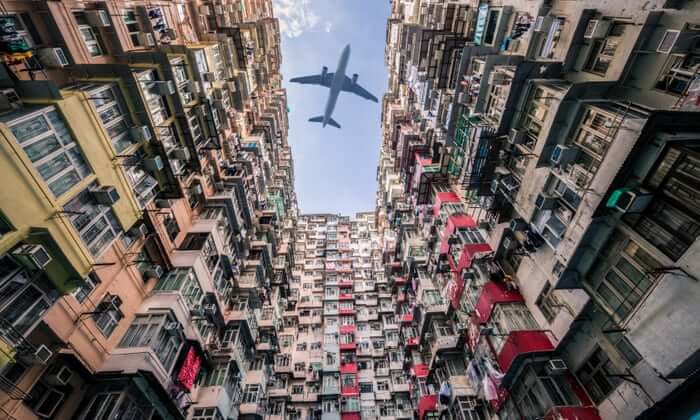
Every plot of land in Hong Kong is bought as a leasehold and will expire in the year 2047. There’s no such thing as freehold real estate ownership here.
Better Alternatives to Hong Kong Real Estate
You’re no longer restricted by borders in the 21st century. Global investors are now able to access dozens of countries – oftentimes without even visiting them.
Because of this, one argument against buying property in Hong Kong is the opportunity cost involved. Nearby markets in the region simply have superior investment potential.
That isn’t just our opinion either. Let’s take a quick look at Singapore, Hong Kong’s main competition and Asia’s second most important financial hub.
Property values in Singapore, while also among Asia’s most expensive cities per square meter, are similar to housing prices in Hong Kong. Singapore is generally a wealthier place than Hong Kong as well.
Likewise, rental yields in Singapore are superior, foreigners can legally own freehold property, and the city state is further removed from Chinese influence when compared to Hong Kong.
Our point is: the goal of an investor is making money. Why would you buy real estate in Hong Kong if alternatives exist with excellent yields, great appreciation potential, and more attractive valuations?
Why settle for a leasehold in Hong Kong when you can own land elsewhere in Asia on a freehold basis?
The city absolutely still serves a purpose for international investors. For example, opening a Hong Kong brokerage account is perhaps the best way you can trade stocks in multiple Asian equity markets.
You should stay away from Hong Kong real estate though. Whether you’re seeking rental yields or capital appreciation, Asia hosts numerous better investment options.
Skip the Next Western Recession
Learn the best places to invest - and where to avoid - by downloading our free Investment Cheat Sheet.

